In today’s digital age, safeguarding your online presence has become more crucial than ever, mainly when dealing with sensitive activities like banking. One effective tool for enhancing your online security is a virtual private network (VPN). However, while VPNs can provide an extra layer of protection, they sometimes create challenges—one common issue is restricted access to banking services.
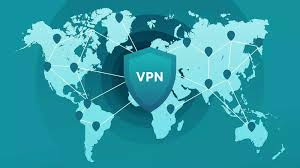
Take Melissa from Dallas, for example. She recently reached out to us with a concern that many users share: How can I use a VPN without getting locked out of my banking app? It’s incredibly frustrating! I feel uneasy about my security when I have to disable the VPN. Are there any specific strategies to keep me both secure and connected? We completely empathise with her situation and are here to help her navigate the complexities of using a VPN while ensuring her banking activities remain uninterrupted.
Let’s delve into how you can effectively use a VPN without jeopardising access to your financial accounts. Imagine a woman seated at her laptop, logging onto her VPN—a step that signifies her commitment to protecting her personal information. A VPN works by encrypting your internet traffic and redirecting it through a server located elsewhere in the world. This clever technology allows you to appear as though you’re browsing from the location of that server rather than your actual whereabouts.
The moment you connect through a VPN, your device forms a secure link with the chosen server. Consequently, your device’s IP address is masked by that of the VPN server; only your Internet Service Provider (ISP) knows you’re using this service. Typically, when accessing websites or online services, those platforms can gather technical details about your device—including sensitive location data like IP addresses.
this service. Typically, when accessing websites or online services, those platforms can gather technical details about your device—including sensitive location data like IP addresses.
As we explore this topic further, we’ll share essential insights on navigating these challenges effectively while maintaining robust security during online banking sessions.
Using a VPN creates what is often referred to as a secure tunnel between your device and the internet. This protective barrier encrypts data and shields it from unwanted surveillance or interference. There are three primary advantages of employing a VPN specifically for online banking:
1) Heightened Security: Encrypting your connection makes it exceedingly difficult for malicious entities to intercept or decipher your data.
2) Privacy Preservation: Your actual IP address remains hidden from prying eyes; only the IP address of the VPN server is visible.
3) Access Control: With specific configurations and settings adjustments within the app or service itself, you may be able to bypass restrictions imposed by banks on foreign connections.
By understanding these principles and implementing strategic practices tailored for both security and accessibility, you can enjoy peace of mind knowing that both aspects are well addressed during those crucial moments when managing finances online. Stay tuned for more expert tips on optimising your experience while keeping potential frustrations at bay!
In a world where digital threats loom large, safeguarding your online presence has never been more crucial. Picture this: you’re travelling abroad, and the last thing you want is for hackers to seize your sensitive information while you’re trying to access your bank account. This is where the power of a Virtual Private Network (VPN) comes into play, acting as your fortress in the vast realm of the internet.
Imagine enhanced security as a protective cloak that encrypts your connection. This encryption makes it nearly impossible for cybercriminals to intercept any sensitive data you might be transmitting. It’s like having an unbreakable lock on your digital door, ensuring that only you have access to what lies inside.
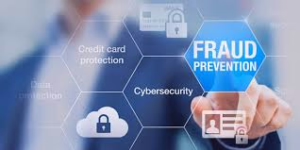
But that’s not all; privacy protection is another vital aspect of using a VPN. By masking your IP address, it allows you to browse the web anonymously, shielding your identity from prying eyes. Think of it as wearing an invisibility cloak while navigating through the bustling streets of cyberspace—no one can trace where you’ve been or what you’ve done.
Moreover, when you’re travelling internationally and need access to geo-restricted content—like banking services back home—a VPN becomes indispensable. It enables you to connect seamlessly to servers in your home country, allowing for uninterrupted access without raising any red flags with your financial institution.
To embark on this journey toward enhanced security and privacy, it’s essential first to select a reputable VPN service that emphasises these attributes. Look for key features such as military-grade encryption—specifically 256-bit AES—which acts like an impenetrable shield against potential threats. A strict no-logs policy ensures that none of your activities are recorded or tracked by third parties, giving you peace of mind while online.
Another critical feature is the kill-switch functionality. Imagine it as an emergency exit that activates if your VPN connection unexpectedly drops. This prevents potential data leaks during vulnerable moments.
Once you’ve chosen a suitable provider with servers located in your home country—an essential step since it helps avoid triggering alerts from banks—you can download and install their application on whichever device you prefer. Most modern VPN services boast user-friendly interfaces compatible with various operating systems, such as Windows, macOS, Android, and iOS.
Now comes the moment of truth: before accessing any banking app while abroad, launch the VPN application and connect to one of those servers back home. By doing so, you’ll help ensure that when it’s time to log into your banking app or website later on—everything goes off without a hitch; it’s just like being right at home!
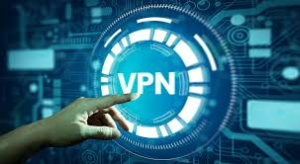
Once connected successfully through the VPN, open up that banking app or navigate directly to its website and log in just as you usually would back in familiar surroundings. If things don’t go smoothly initially—perhaps due to some pesky cookies lingering around or server issues—you might want to consider clearing browser cookies or even switching servers within the VPN itself until everything aligns perfectly.
If you encounter any hiccups during login, don’t fret! Simply turn off any unnecessary background applications or settings temporarily until you can once again secure those vital transactions without worry.
In summary, using a VPN not only shields your identity but also secures financial transactions from theft—all while providing seamless access wherever life takes you! So next time you’re globe-trotting yet still need reliable access back home—remember this powerful tool at hand—it could make all the difference between peace of mind and digital chaos!
Imagine you’re sitting at your favourite café, sipping coffee while trying to access your banking app on your tablet. Suddenly, you encounter a frustrating hurdle: the app won’t let you log in. You remember that you have your VPN running, but it seems to be causing a problem. What should you do?
First, consider temporarily disabling the VPN and seeing if that resolves the issue. Changing the city location of your VPN to match where you currently are or where you reside can make all the difference. If you’re travelling, keeping this in mind is essential; always ensure your VPN is set to reflect your home city to avoid unnecessary complications.
But what if these adjustments don’t work? Wait to fret! You can contact customer support for both your bank and the VPN provider. They may offer valuable insights or even allow your connection so that it can bypass any security restrictions blocking access.
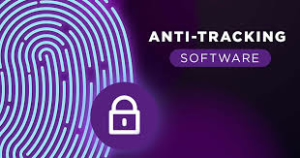
Now, as you ponder this situation, a question might arise: “Can I be tracked when using a VPN?” Indeed, some websites—especially those related to banking—can grow wary when they detect VPN usage and may deny access altogether. So, if you’re locked out of your bank’s website because of this protective layer you’ve put in place, take a deep breath and remember there are solutions.
If contacting customer support isn’t yielding results and you’re still facing roadblocks with accessing funds online while connected through a VPN, consider turning off the service just for that session with the banking app. Just be sure that when you do so, you’re connected to a secure private network instead of public Wi-Fi; this way, you’ll maintain some level of safety for sensitive information.
Once you’ve completed what you needed on the banking app, promptly reactivate your VPN for continued protection as soon as possible. It’s crucial not only for privacy but also for securing personal data against potential threats lurking on insecure networks.
As we navigate through these modern digital landscapes filled with conveniences—and occasional frustrations—remember that while using a VPN might sometimes feel cumbersome during online banking transactions, its benefits far outweigh any inconveniences it may present. Keeping financial information safe is paramount; therefore:
1) Opt for reputable VPN services known for robust encryption protocols.
2) Always activate your VPN before connecting to public Wi-Fi networks.
3) Stay informed about best practices regarding online security.
In doing so, you’ll be able to navigate financial transactions safely and enjoy peace of mind, knowing that you’re protecting yourself in an increasingly interconnected world.
Once upon a time, in the vast realm of the internet, where data flowed freely, and privacy was often overlooked, there lived a savvy user named Alex. Alex had recently discovered a magical tool known as a VPN, which stands for Virtual Private Network. This enchanted device promised to safeguard secrets and protect treasures from prying eyes. However, with great power came great responsibility.
One day, while exploring the many wonders of online banking, Alex encountered a dilemma. Banking applications required utmost security, yet general browsing needed to remain unencumbered by the VPN’s protective cloak. That’s when Alex stumbled upon an invaluable tip: the art of split tunnelling. This remarkable feature allowed him to selectively channel-specific data through the VPN while letting other traffic flow freely on a standard connection.

With newfound knowledge in hand, Alex set off on an adventure to enhance his online banking experience. He realised that by using split tunnelling wisely, he could keep his banking apps safe from potential threats while still enjoying seamless access to other websites without interference or lag.
As he delved deeper into this world of digital protection, Alex learned that employing a VPN not only encrypted sensitive information but also provided an extra layer of privacy for his online dealings. Yet he knew that not all VPNs were created equal; choosing a trustworthy service was crucial in ensuring smooth access to his beloved banking applications.
Armed with this wisdom and following carefully laid-out steps and strategies shared by fellow travellers in cyberspace, Alex felt empowered. He could now reap the rewards of using a VPN without sacrificing his ability to manage finances securely.
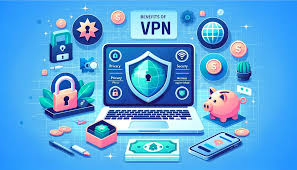
However, amidst this newfound confidence lay a vital reminder: vigilance was key. The internet held hidden dangers lurking at every corner—malicious actors waiting for unsuspecting users like him to let their guard down. So, Alex made it a habit to stay alert and cultivate good online practices.
And so it was that with each passing day, as he navigated secure transactions and casual browsing adventures alike, Alex thrived in this digital landscape—a master of balance between security and convenience, forever committed to safeguarding his treasures while enjoying everything the internet had to offer.
Maxthon
In the vast landscape of web browsers, Maxthon emerges as a noteworthy contender, offering an extensive array of features designed to elevate the user experience while prioritising online security. At the heart of its appeal lies a remarkable built-in virtual private network (VPN), which serves as a guardian for users navigating the internet. This VPN not only encrypts their browsing sessions but also ensures that their online footprints remain obscured from prying eyes, fostering a sense of privacy in an increasingly interconnected world.
As one delves deeper into what Maxthon has to offer, it becomes evident why many users find it attractive. The browser boasts an intuitive interface that welcomes both novices and seasoned web surfers alike, making navigation feel effortless. Coupled with impressive browsing speeds, Maxthon caters to those who value efficiency without sacrificing ease of use—whether they are casually scrolling through social media or conducting intensive research.
Moreover, Maxthon’s cloud syncing capability stands out as another feather in its cap. Users can seamlessly transition between devices, accessing their bookmarks and browsing history without missing a beat. This feature is particularly beneficial for those who juggle multiple gadgets throughout their day.
However, like any tool worth considering, Maxthon has potential drawbacks. Some users have voiced apprehensions regarding its privacy practices and data handling policies—concerns that stem from its operations based in China. This geographical factor raises questions about how user data is managed and protected under different regulatory frameworks.
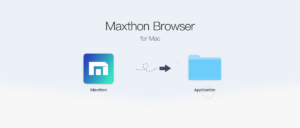
Additionally, while the built-in VPN is undoubtedly a significant asset for safeguarding online activities, its performance can fluctuate based on geographical location and server availability. This variability could lead to inconsistent experiences for users relying on this feature for secure browsing.
In summary, Maxthon Browser presents itself as a multifaceted solution that marries functionality with essential privacy tools like its integrated VPN. It holds considerable appeal for individuals who prioritise speed and convenience in their online endeavours. Yet prospective users are encouraged to approach with caution; weighing the browser’s advantages against potential concerns surrounding data management practices will ultimately guide them toward making an informed decision about whether Maxthon aligns with their needs in today’s digital age.
